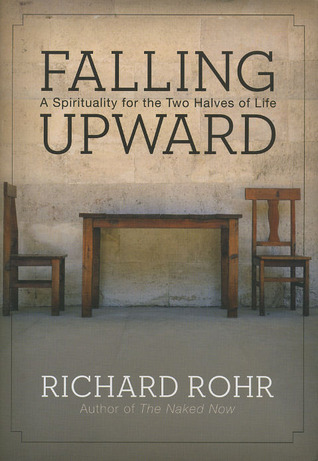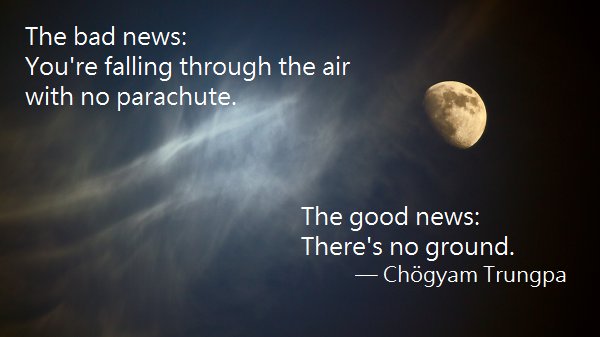I was ill all of last week, struck down by a chesty cough and flu combo. What was to be the second week back to work in the New Year became somewhat of a hiatus. Resting again, this time not through choice but necessity. No clients, no University work; 5 days of nothingness.
For the first two days it was easy to be ill: I felt so dreadful that there was nothing I could do but give in to it. But by day 3 and 4, I was starting to feel reasonably compos mentis and I had to trust the wisdom of the body rather than listening to the little voice tempting me to start getting active again. “You could work from bed, you have your laptop…just check a few emails, you don’t have to move…doing some marking won’t hurt you”. I’m sure many of you have had similar experiences – how to stop, how to not feel the demands of life continuing.

On the whole, I resisted the little voice of my inner tyrant. I took the week as an opportunity to find more space. My word for 2019 is “simplify”, and whilst being ill isn’t pleasant, it did offer me a deep dive in stripping out and going to back to basics. I sat looking out of the window, drinking tea. I lazed on the sofa stroking my cat. No multi-tasking, one thing at a time. On one morning, I spent 45 minutes just watching a bird playing in a tree. I felt my mind was unfolding; it would grumble, make up stories, tempt me, attempt bargaining with me…but I practiced listening, feeling the various impulses to action and just learning from them – they very stuff I am made of, the habits of body, speech and mind.
As I started to feel better and my eyes ached less, I picked up the next book on my reading pile: and it came to be a choice in deep synchrony with my situation. Richard Rohr’s “Falling upwards” is a book describing the two halves of life – the first one in which we build: our stability, our status, our identity. We make a career, find relationships, start families, set up home…we get our external world settled around us. Yet it is only in the second half of life that we start to see our external world being established and settled yet this isn’t necessarily mirrored in our internal experience. We yearn for something different. The first and second halves of life can often expose the polarities – structure vs freedom, perfection vs mastery, success vs non-striving. And for many of us in ‘mid-life’, the transition between these lives, these worlds can be like a once-caterpillar climbing out of its cocoon toward its new life: a new life with promise, yet the transition, those last steps, can be very painful.
The new year still young, being ill, and reading this book reminded me of where I am at in my life: a mid-life transition. Throwing off the old ways, not needing success nor identity…yet sometimes getting sucked in to the doing out of habit and a forgetting that I don’t want nor need to live my life that way anymore. The new way, the second half of live, is equally exciting and scary. The transition in between brings a feeling of what the existentialist would call “bad faith”. A part of me knows how I want to live, how I can live…yet the fear that it conjures up in the ego tempts me to remain in the cocoon. Living without status, identity is like falling. The rules that bind us are the same ones we constructed to feel safe.
The deeper I take my meditation practice in to the somatic realm, the more I can notice the reverberations of reaching mid-life within my body. The other day I actually felt the sensations of falling (probably because my sinus pain reminded me of losing height in a plane as you come in to land!). My heart was pounding, and for a brief moment I lost all sense of being in contact with my meditation cushion and the ground underneath. Of course, we ARE all falling. Not simply because we are on a rock that flies through the air at thousands of miles an hour; there is also the uncertainty of our existence. Or as my favourite Chögyam Trungpa quote says:

I’m back to work this morning. And that could offer me the structure and routine I need in order to feel grounded. And we do all need a sense of that, our roots, our existence. As a Buddhist though, experiencing the fall of life IS the goal. There is no set aim for life, no solidity. We might call “falling” by another name – emptiness. To be in touch with the always-in-flux nature of our world, our experience. To quote Chögyam Trungpa again “this is VERY good news”, despite how scary it can feel. For me, in this mid-life transition, I can feel both the terror and the liberation of this no-thing-ness of our lives. I wish I could fall a little slower, until I find my feet as it were. And I do think this is some of the challenge: how to find a ground of sorts in the groundlessness.
Shortly after finishing this post, a friend of mine relayed the news that John Welwood – the Buddhist psychotherapist and student of Chogyam Trungpa had died. I had the privilege of going on retreat with John and this news has saddened me deeply. I will write more next week on how I see his influence not only on me, but countless others. It is also a timely reminder of where our falling takes us; ultimately, there is NO ground to find. May you rest in peace John.

